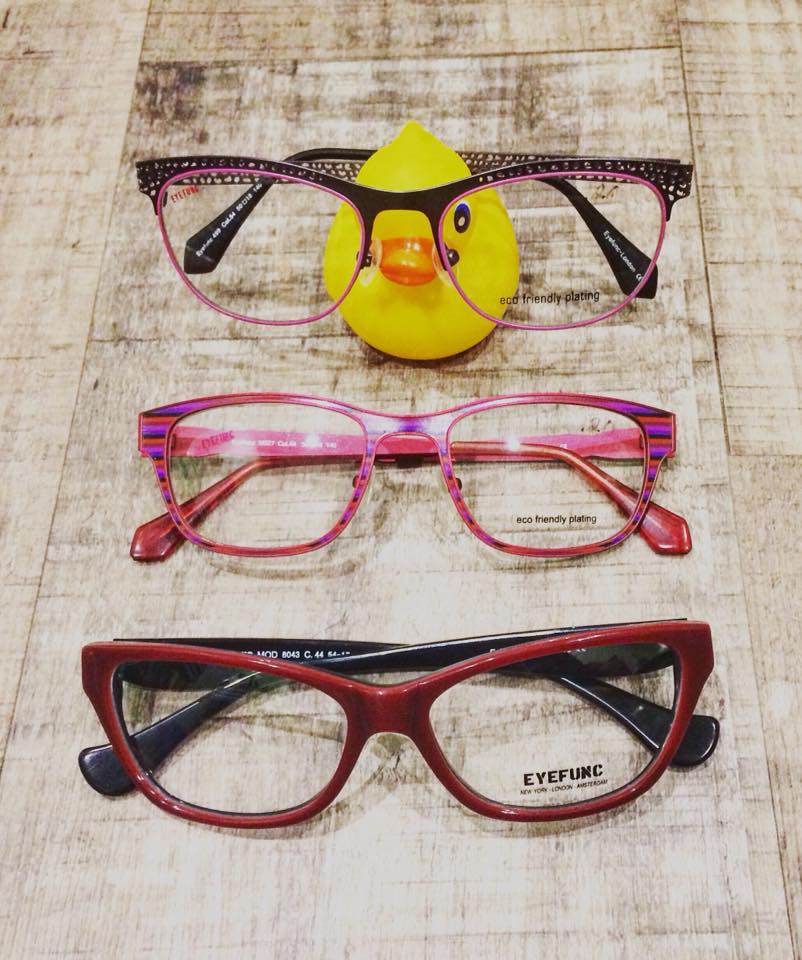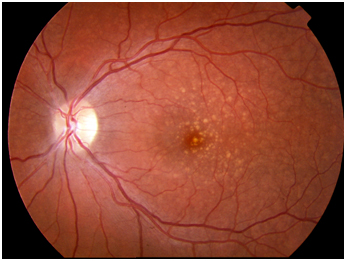Check out these incredible Spring Styles! These beauties, along with many more, are only $120 each and that INCLUDES basic lenses! Yes, it's true!
Please note that this offer is only available while supplies last.
Check out these incredible Spring Styles! These beauties, along with many more, are only $120 each and that INCLUDES basic lenses! Yes, it's true!
Please note that this offer is only available while supplies last.


According to the American Optometric Association, most children learn through the use of his or her eyes. Visual demands required of students today are different than they used to be, especially with the advent of smart phones and tablets. When in class, students often need to be able to view something far away (i.e. on the chalkboard) and then take notes on a piece of paper at their desk. This type of work requires that the eyes work together properly. If they do not, school can be quite a challenge. The vision screenings that are done at school or at a pediatrician’s office are very general, and do not check the child’s “accommodation” and “convergence,” which both deal with the focusing system of the eyes. Without checking these, it is virtually impossible to know how the child is doing with reading and other daily activities in the classroom. Additionally, problems in these areas may lead to headaches and eyestrain, especially at the end of the day.
All children can benefit from a comprehensive eye exam, to ensure that they have the best possible vision and ocular health to meet the demands required of them. Besides checking distance vision, a comprehensive exam will include a check of near vision, eye alignment, color vision, depth perception, determination of a glasses prescription if necessary, and an evaluation of ocular health.
I generally recommend bringing your child in every one to two years. Though most children come in for their first eye exam doing fine and not needing any visual correction, it never hurts to check. It is amazing how much a child’s behavior may change and performance in school start to improve once the necessary visual correction is prescribed.

We are offering 20% OFF SUNGLASSES UNTIL THE END OF FEBRUARY as a REWARD for actually glancing at our blog! Treat yourself to the latest styles from Oakley, Rayban, Oliver Peoples, Coach, Kate Spade, and more! We apologize, but cute baby will not be included with your purchase. Cannot be combined with insurance. Please mention that you are redeeming the "20% off sunglass offer" at checkout.

Macular degeneration is a disease of the central retina, and is more common over the age of 65. In its early stages, there are no symptoms. If it progresses, it can cause central vision loss. It does have the potential to lead to permanent blindness. Macular degeneration is something that can be diagnosed by your optometrist at your yearly eye exam. In its early stages, certain lifestyle changes are recommended to prevent progression (including diet changes, specific vitamin recommendations, and smoking cessation). In its more severe form, eye surgery is generally recommended to prevent progression. Retinal photos can be taken at our office to monitor progression.

Acanthamoeba keratitis is a relatively rare eye disease that can occur in contact lens wearers, caused by an amoeba that can be found in lake water, pool water, ocean water, soil, and even tap water. It is difficult to treat and therefore often leads to permanent vision loss. How can you prevent this disease from occurring? By following proper contact lens hygiene, of course! This includes replacing your contact lens case at least every 3 months, maintaining proper contact lens cleaning/storage habits, using a doctor-recommended contact lens solution, not reusing contact lens solution, and not swimming or showering with your contact lenses in your eyes.


Your baby's eyes are not very sensitive to light in the first month of life. In fact, the amount of light required for a 1-month-old infant to be aware that light is present (called the light detection threshold) is 50 times higher than that of an adult. So it's okay to leave some lights on in the nursery! It won't affect their ability to sleep, and it may help keep you from running into walls when you go in to check on them!
